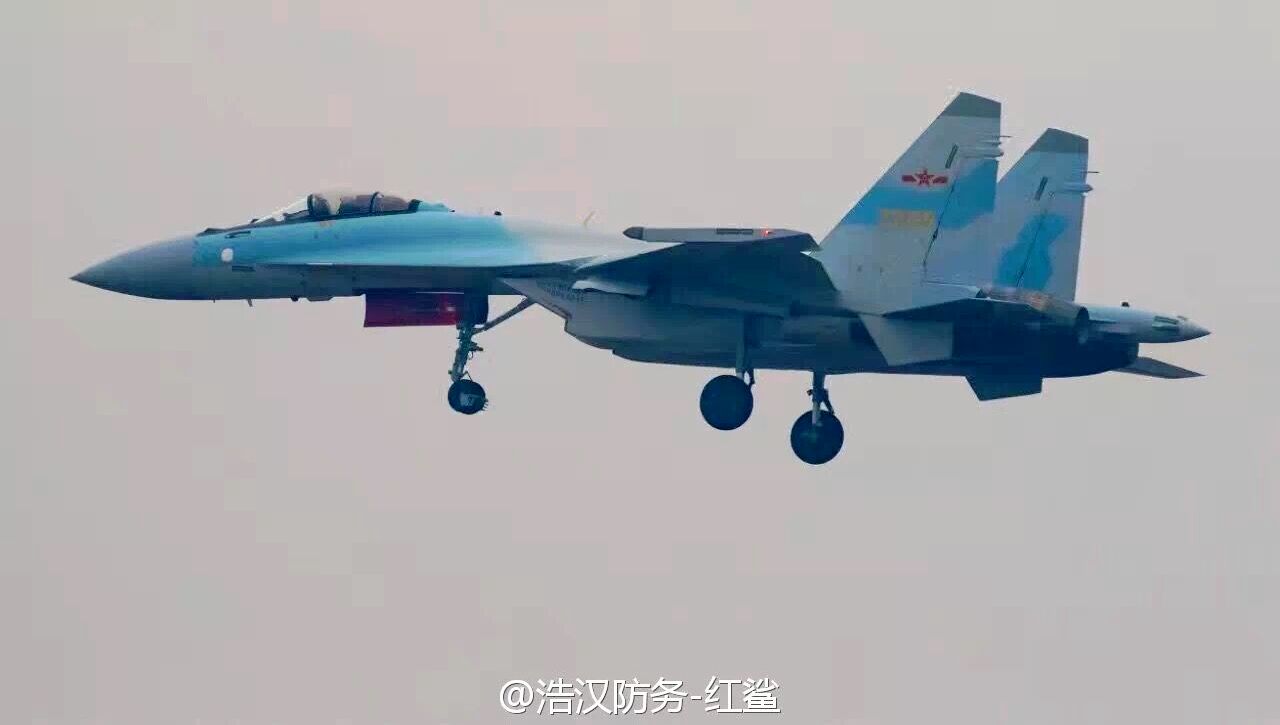China’s National People’s Congress (NPC) unanimously endorsed General Li Shangfu, known for getting China its Su-35S fighters and S-400 air defense systems from Russia, as the new defense minister at a recent plenary meeting.
General Li Shangfu is an aerospace engineer and veteran of the People’s Liberation Army (PLA). His appointment as China’s Defense Minister is making headlines, as he is among the many Chinese individuals sanctioned by the United States.
However, the appointment turned into another US-Chinese controversy even before General Li could assume the command of the Chinese defense. General Li Shangfu was sanctioned by the US Treasury Department in 2018 when he was in charge of the nation’s military technology as director of the Equipment Development Department.
According to the US State Department, Li acquired Su-35 combat aircraft and components for S-400 surface-to-air missiles from the Russian state arms export agency Rosoboronexport.
The notification from the State Department read: “In consultation with the Secretary of the Treasury, the Secretary of State imposed sanctions on the Chinese entity Equipment Development Department (EDD) and its director, Li Shangfu, for engaging in significant transactions with persons on the LSP. These transactions involved Russia’s transfer of Su-35 combat aircraft and S-400 surface-to-air missile system-related equipment to China.”

The People’s Liberation Army Air Force was Russia’s first customer of the Su-35S. The negotiations started as far back as 2011, a deal was signed in 2015, and Beijing began to receive the Su-35S multirole fighter jets from Russia in 2016.
China’s Ministry of National Defense (MND) confirmed in April 2018 that the Su-35 had officially entered service, and the US sanctions came into force soon after.
By 2019, Russia had completed the delivery of all 24 aircraft that now form an essential part of the PLA Air Force and are the most advanced fighter jets at the disposal of the service after the J-20.
The Su-35 of the PLAAF also scares its adversaries in the region. In August 2022, the Chinese Su-35 fighter jets, equipped with long-range air-to-air missiles, reportedly prompted Taiwan’s F-16 pilots to retreat into their airspace.
As for the S-400 Triumf air defense system, Russian President Vladimir Putin approved the sale in 2014, and the PLA secured the delivery of its first regiment in 2018.
The deal raised eyebrows globally, as this was the most advanced air defense system in the Russian arsenal and was reserved for use by the Russian military at the time.
Both these systems acquired from Russia came as a shot in the arm for the PLA, which remains engaged in military tensions with Taiwan, the United States, and other regional adversaries. General Li, by his position, bore the brunt of these acquisitions that bolstered the PLA and strengthened the Chinese-Russian defense ties.
According to regional diplomats, Li’s appointment is keenly observed given his background, even though his new position within the Chinese system is mainly seen as diplomatic and ceremonial, Reuters reported. It is widely known that Chinese President Xi Jinping wields control over the Central Military Commission (CMC) and the People’s Liberation Army.
According to experts, Li’s technocratic background will enable him to play a significant role in achieving President Xi Jinping’s aims for the PLA’s interim targets.
Sanctions On Shangfu Could Complicate Talks
The new defense minister, Li Shangfu, is an aerospace expert and a former senior official of China’s space project. He has been a critical player in lunar exploration missions and served as the director of China’s primary satellite launch sites in Xichang, Sichuan Province, in the southwest of the country.
He was vice commander of the PLA’s Strategic Support Force after the force was established in late 2015 before taking over as the Central Military Commission’s head of the Equipment Development Department in 2017.
Li’s tenure at the Central Military Commission has brought attention to his connections to Xi, who has tightened his hold on the military. In addition, President Xi has undertaken a massive military modernization of the PLA in recent years. This modernization has catapulted several veteran officials into the limelight, with General Li being one of them.
“I think he has been elevated to this position because he’s delivered for Xi Jinping in key areas of modernization,” Singapore-based security analyst Alexander Neill, an adjunct fellow with Hawaii’s Pacific Forum think-tank, told Reuters. “This is someone who will have to hold their own in front of an international audience.”
General Li, according to experts, is also expected to be involved in military relations with other Asian countries on a personal level. He frequently attends gatherings of Asian defense leaders and the informal Shangri-La Dialogue on Security in Singapore.
General Li’s term as China’s Defense Minister begins as Washington works to mend military communications and talks that deteriorated after Beijing reacted angrily to Nancy Pelosi’s visit to Taiwan in August. The already soured ties between the two adversaries took a massive hit after US Air Force shot down an alleged Chinese spy balloon.
While not a deal-breaker for future negotiations, several security experts point out that the sanctions create a possible complexity and might give China’s military leadership influence.
When questioned last week about Li’s expected elevation, Pentagon spokesperson Lieutenant Colonel Marty Meiners said that while the US military has been explicit about its desire to be in touch with the PLA, it could not comment on media stories about China’s leadership changes.
Open channels of communication can aid in risk management, mistake prevention, and ethical competition management, according to Meiners.
However, the rhetoric about a sanctioned General assuming the position has not gone down well in China. Shortly after the western media reported extensively, Chinese military experts told the state-owned Global Times that the US was only engaging in mudslinging.
Further, they resolutely called Washington to withdraw the sanctions “arbitrarily” imposed on Chinese officials, including the incoming Defense Minister.
- Contact the author at sakshi.tiwari9555 (at) gmail.com
- Follow EurAsian Times on Google News